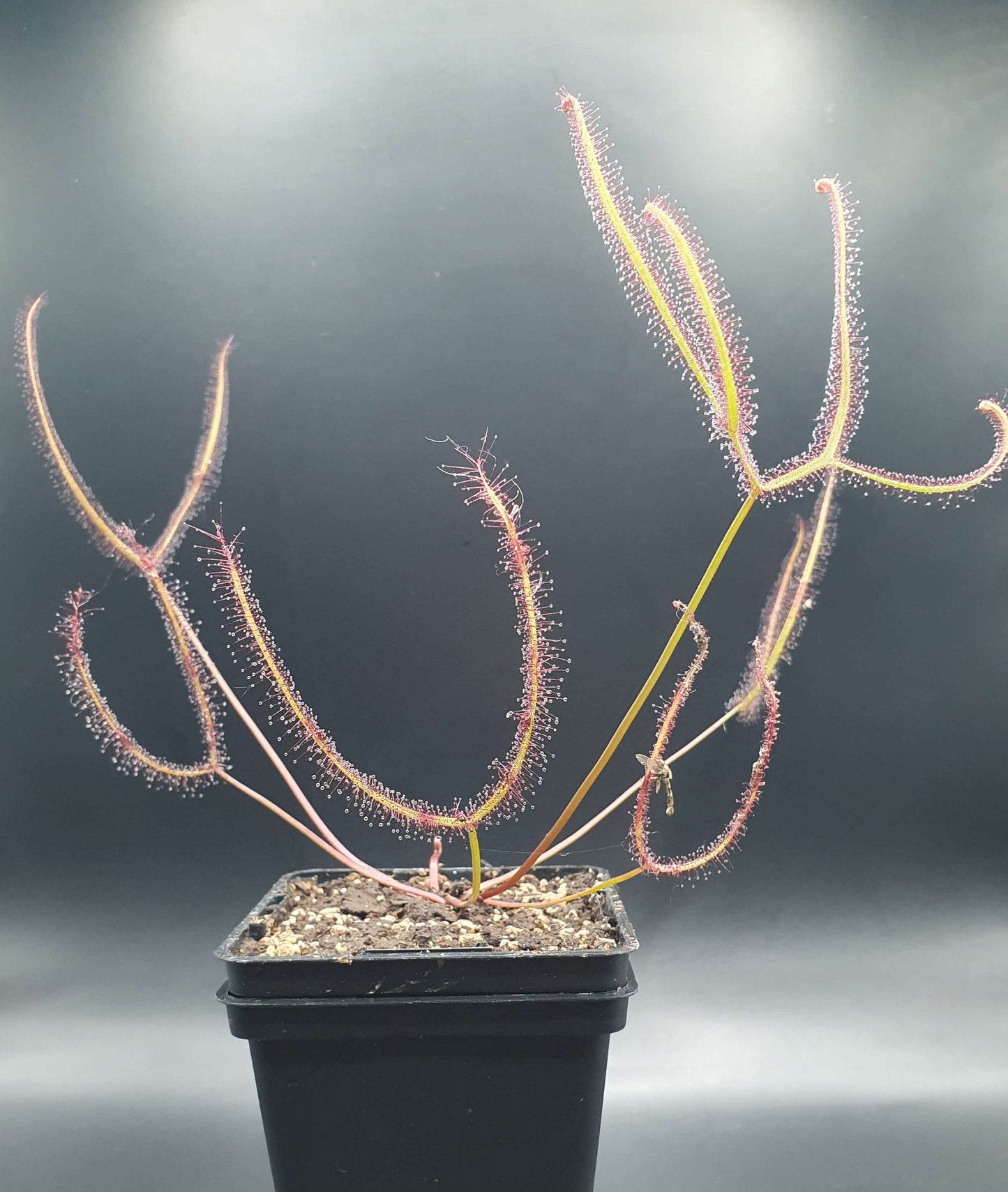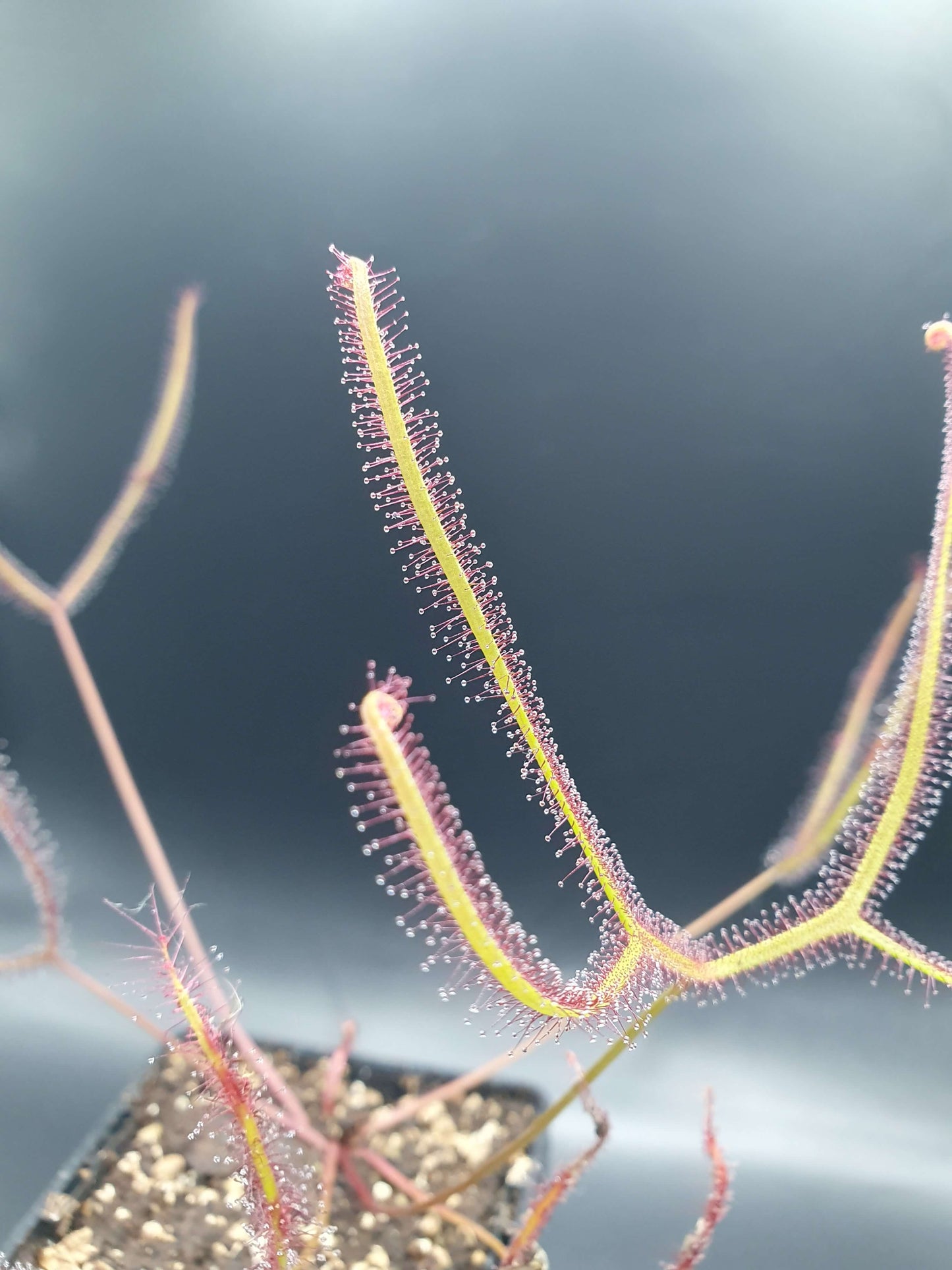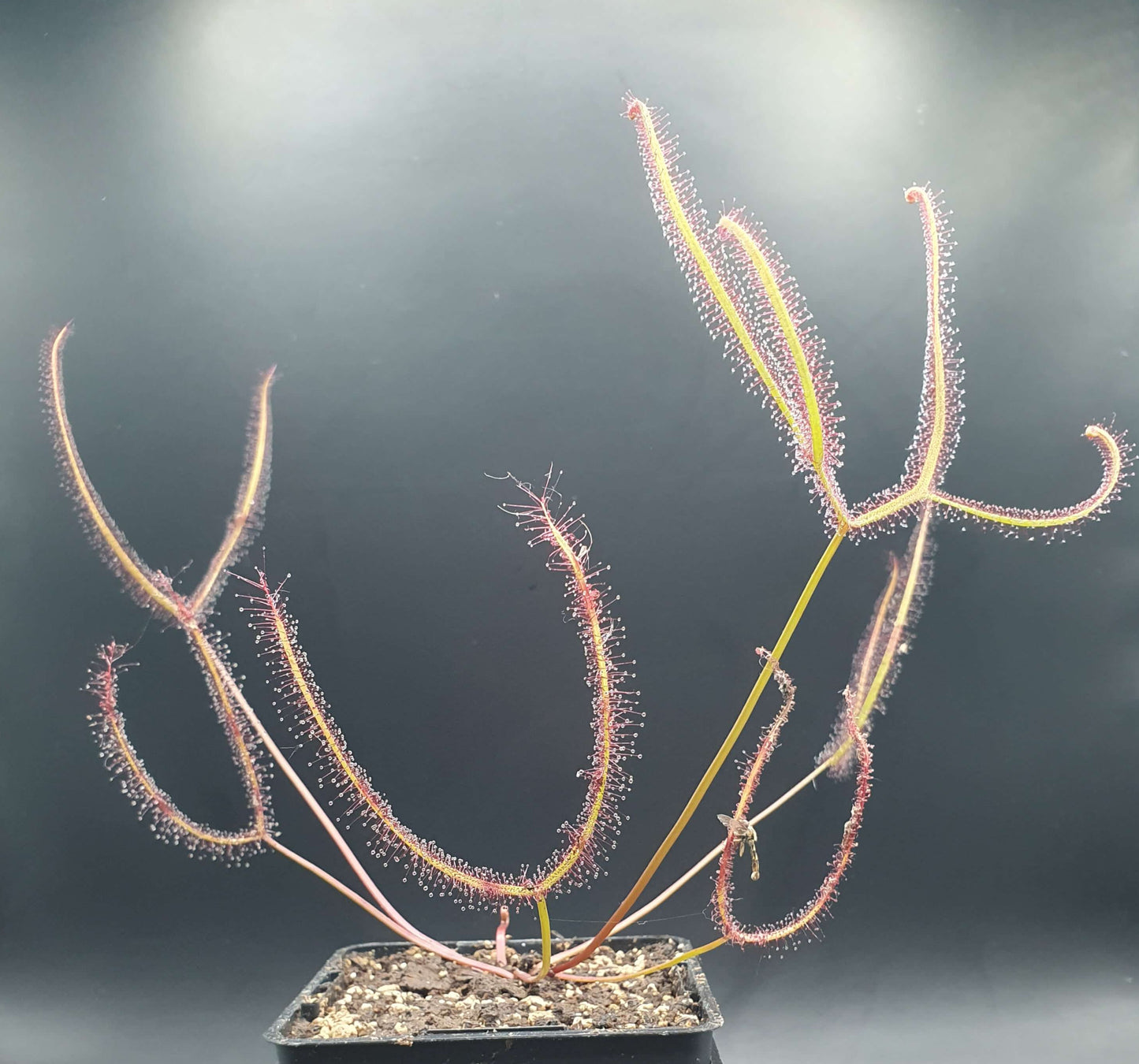Carnivorous plant, Drosera
Drosera binata, Lake Burbury, Tasmania
Drosera binata, Lake Burbury, Tasmania
Couldn't load pickup availability
Details
Details
Adult plant sent with its pot, original substrate.
Please note that the carnivorous plants you receive may not
be identical in size and appearance to those shown on the
Pictures.
Winter Expedition during dormant period October to March
Winter Expedition during dormant period October to March
Adult plant sent in dormant mode, rest assured, they will be well protected during shipping. You can see our article on shipping and packaging here
Our maintenance advice
Our maintenance advice
- In winter, keep the substrate moist and frost-free.
- In summer, bathe the pot in 3cm of water or more depending on the height of the pot.
- Watering only with rainwater, osmosis, demineralized (without perfume) or Zerowater (check the water in your municipality)



Description de la plante carnivore
Drosera binata, Lake Burbury, Tasmania, a Drosera binata which comes from Lake Burbury in Tasmania, an island south of Australia.
Maintenance tips :
Temperature: Between 15°C and 40°C, can withstand freezing temperatures down to -10°C, but only for short periods with positive daytime temperatures.
Water: For watering, I recommend that you opt for a capillary method, making sure to constantly maintain a water level of at least 3 cm, using rain, demineralized or osmosis water.
Light: Full sun or near a sunny window to ensure optimal growth. If natural light is insufficient, consider using suitable artificial lighting, including LEDs.
Dormancy: Requires a period of dormancy from September until the end of February, beginning of March depending on the region. Leaf growth will be slowed, most leaves will turn black and die to make way for smaller leaves during this time. Leave them outside in full sun, always in a soggy substrate. In winter, the canrnivorous plant will go dormant by forming a hibernacula. It will start again in the spring and can also start again from the roots. You can learn more about proper care here.
Substrate: Choose a substrate with blond sphagnum peat mixed with perlite. (I recommend a mixture of 50% peat and 50% perlite.) You can also find a special substrate designed for carnivorous plants in our online store here.



